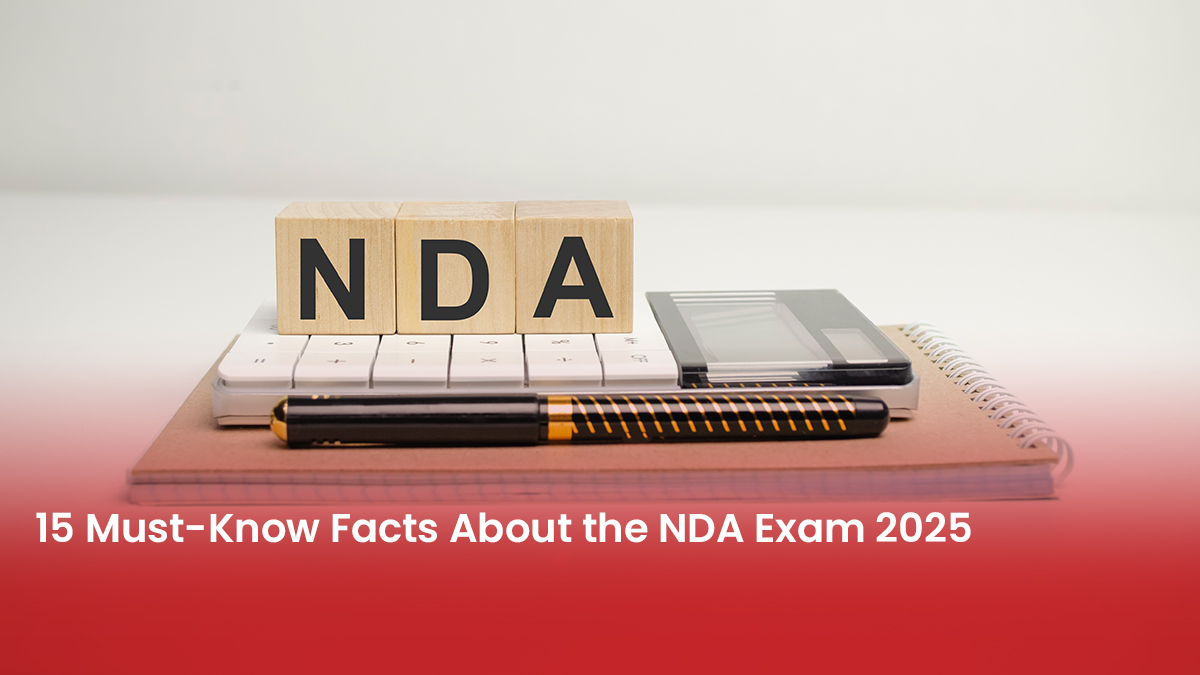You are watching the news and, suddenly, the reporter says, “ED has conducted a raid in multiple locations.” You hear this word so many times, but do you really know what ED means?
Maybe you heard of this term while reading about jobs, salaries, or school subjects. However, people do encounter ED in many different places, and most of them don’t know the full meaning. It is applied in news, education, medicine, and lots of other things, but it has a meaning depending on what it is being used for.
In this blog, let us learn the complete details like ED full form, its different meanings, and why it matters.
What is meant by ED?
As soon as India gained independence in 1947, the government came up with the Foreign Exchange Regulation Act (FERA) to regulate currency-related matters. It was an act managed by the Department of Economic Affairs under the Finance Ministry.
It also formed a special team in the year 1956, the Enforcement Unit. In 1957, that team was then renamed the Enforcement Directorate (ED). Since then, in the year 1960, operations of the ED have been performed by the Revenue Department.
The ED full form in India is the Enforcement Directorate. It refers to a government department that looks into money-related crimes.
What is the full form of ED?
Many people, while hearing the term ED often, do not know what is the full meaning of it. The ED Full Form in India is the Enforcement Directorate. It investigates financial crimes by the government; these include money laundering and any illegal foreign transactions.
The ED department full form is also known as the Directorate of Enforcement, which operates under the Ministry of Finance. Its primary job is to ensure that people and businesses do not indulge in illegal money activities and follow the financial laws.
Understanding the roles of ED in various forms
The ED department full form refers to the Enforcement Directorate in India, where it plays a vital role in law enforcement, particularly focusing on financial crimes. However, ED is also used in various other fields, such as education, healthcare, and business. Below is an explanation of how ED plays a role in different areas:
1. ED in law enforcement
The ED full form in India is the Enforcement Directorate. This is a government institution that caters to financial crimes, such as money laundering, illegal foreign exchange violations, and other economic offenses. The Enforcement Directorate primarily caters to the Prevention of Money Laundering Act (PMLA) and Foreign Exchange Management Act (FEMA), making sure that individuals and companies abide by India’s economic laws.
The ED traces the flow of money, raids, and attaches properties and assets in connection with financial crimes. Its role is significant in keeping India’s financial system clean and away from corruption, black money, and other illegal activities.
2. ED in raids
When people hear about ED raid full form, they are referring to raids conducted by the Enforcement Directorate. These are raids that the Enforcement Directorate (Ed ki full form) makes to the places of people or organizations suspected of doing financial crimes such as money laundering.
The evidence is sought and illegal assets are seized along with taking appropriate action to prevent wrongdoers from continuing such criminal activities. Raids are crucial because they enable the ED to stop criminal activities that can affect the financial system of the country.
Headquarters of ED and regional offices in India
The Enforcement Directorate (ED ka full form) has its presence in the entire nation for the proper surveillance and investigation of financial crimes. The head office of ED is in New Delhi, while many regional and zonal offices are present throughout the country for case handling and proper enforcement of financial laws.
All these offices function under the aegis of senior officials. This is a general structure of the ED’s organizational arrangement:
| Office type | Key locations |
Headed by |
|
Headquarters |
New Delhi | Director General |
| Regional Offices | Mumbai, Chennai, Chandigarh, Kolkata, Delhi |
Special Directors of Enforcement |
|
Zonal Offices |
Pune, Bengaluru, Chennai, Kochi, Delhi, Panaji, Guwahati, Hyderabad, Jaipur, Jalandhar, Kolkata, Lucknow, Mumbai, Patna, Srinagar |
Joint Directors |
|
Sub Zonal Offices |
Mangaluru, Bhubaneshwar, Kozhikode, Indore, Madurai, Nagpur, Allahabad, Raipur, Dehradun, Ranchi, Surat, Shimla, Visakhapatnam, Jammu |
Deputy Directors |
Offices of Enforcement Directorate in India: locations and structure
The Enforcement Directorate (ED) is spread across India and performs its law enforcement functions effectively in all parts of the country. ED has a well-structured network of offices, categorized into regional, zonal, and sub-zonal levels, each performing important roles in investigating financial crimes and ensuring compliance with economic laws.
Regional Offices
The ED has five regional offices, each headed by a Special Director of Enforcement. These offices oversee the operations within their respective regions:
|
Region |
Location |
|
Western |
Mumbai |
| Southern |
Chennai |
|
Northern |
Chandigarh |
| Eastern |
Kolkata |
|
Northern |
Delhi |
Zonal Offices
Beneath the regional offices are the zonal offices, each managed by a Joint Director. These offices are strategically located to cover specific areas:
- Pune
- Bengaluru
- Chandigarh
- Chennai
- Kochi
- Delhi
- Panaji
- Guwahati
- Hyderabad
- Jaipur
- Jalandhar
- Kolkata
- Lucknow
Sub-Zonal Offices
At the grassroots level, the ED operates sub-zonal offices, each led by a Deputy Director. These offices handle localized investigations and support the zonal offices:
- Mangaluru
- Bhubaneshwar
- Kozhikode
- Indore
- Madurai
- Nagpur
- Allahabad
- Raipur
- Dehradun
- Ranchi
- Surat
- Shimla
- Visakhapatnam
- Jammu
Functions of the Enforcement Directorate (ED)
The Enforcement Directorate (ED ka full form) plays a crucial role in investigating and enforcing laws related to financial crimes. Its primary functions are centered around maintaining economic integrity and upholding the nation’s financial laws. Below are some key functions that the ED is responsible for:
Investigating financial crimes
The ED investigates major financial crimes, including money laundering and violations of foreign exchange laws. It works under the Prevention of Money Laundering Act (PMLA) and the Foreign Exchange Management Act (FEMA). These crimes often involve large sums of money, making it vital for the ED to act swiftly to prevent such activities from harming the economy.
Regulating foreign exchange laws
One of the primary functions of the ED is to ensure compliance with the Foreign Exchange Management Act (FEMA). This includes investigating illegal foreign exchange transactions and ensuring that funds do not flow into or out of India in violation of the country’s economic policies.
ED subject: full form in Law Enforcement
When it comes to law enforcement, the ED’s role extends beyond just investigations. The ED subject full form refers to the specialized subjects it handles, like money laundering and economic crimes. These subjects are vital in protecting the financial interests of the country and ensuring that legal standards are maintained.
Combating corruption and terror financing
The ED also plays a major role in tackling corruption and financing terrorism. By investigating illegal money flow and uncovering networks that support terrorism or corrupt practices, the ED helps strengthen national security.
ED full form in Hindi
In India, the ED full form in Hindi is “प्रवर्तन निदेशालय” (Pravartan Nideshalay). The agency’s role in enforcing financial laws is recognized across various sectors, making it a vital institution for securing the nation’s economy.
ED full form: salary and job functions
The responsibilities of ED officials, including those investigating financial crimes, come with a rewarding career. The ED full form salary varies based on the position, with higher-ranking officials like Joint Directors and Special Directors receiving attractive salaries, reflecting the importance of their role in ensuring compliance with India’s financial laws.
Collaboration with other agencies
ED works in collaboration with other law enforcement agencies like the CBI (Central Bureau of Investigation) and NIA (National Investigation Agency) to ensure that all illegal financial transactions are thoroughly investigated and actioned.
The importance of ED in preserving the Indian economy
The significance of the Enforcement Directorate (ED) lies in its role as the key agency responsible for maintaining financial integrity in India. It combats financial crimes such as money laundering, foreign exchange violations, and corruption, ensuring that these illegal activities do not destabilize the country’s economy. Through its investigations, the ED upholds the rule of law and safeguards the nation’s financial systems, making sure they are secure and transparent.
- It plays a major role in protecting the economy against criminal activities.
- The agency strictly follows foreign exchange laws in the country.
- It strengthens the national integrity of the country’s financial system as it investigates money laundering and eradicates other forms of money laundering.
- It advocates for the efficient prevention of finances from being misapplied in terrorizing or corrupting themselves or other officials.
- The ED ensures that collaboration with other agencies fighting crime makes the fight for economic crimes much stronger.
- It is critical in maintaining India’s position in global economic issues.
Conclusion
The ED full form in India, or the Enforcement Directorate, plays a pivotal role in safeguarding the nation’s financial integrity. With a strong focus on investigating financial crimes such as money laundering and foreign exchange violations, the ED ensures that illegal activities do not undermine the country’s economic structure.
The ED department full form represents a crucial institution under the Ministry of Finance, committed to enforcing economic laws and maintaining financial transparency. Through its efforts, the ED helps strengthen the country’s financial system, promoting lawful and secure economic growth.
FAQs
1. What is the full form of ED?
The ED full form stands for Enforcement Directorate, which is an Indian government agency responsible for investigating financial crimes, including money laundering and violations of foreign exchange laws.
2. What is the ED department full form in India?
The ED department full form in India is the Enforcement Directorate. It operates under the Ministry of Finance and is tasked with enforcing laws related to economic offenses and financial crimes.
3. What does ED do?
The ED investigates major financial crimes, such as money laundering and foreign exchange violations. It ensures that individuals and businesses comply with India’s financial regulations and works to prevent illegal financial activities.
4. What is the full form of ED in Hindi?
The ED full form in Hindi is प्रवर्तन निदेशालय (Pravartan Nideshalay), which refers to the agency responsible for enforcing financial laws and investigating economic crimes in India.
5. How does ED conduct raids?
The ED conducts raids at locations suspected of being involved in financial crimes such as money laundering. The ED raid full form refers to these investigative actions where assets are seized, and evidence is collected to stop illegal financial activities.

























